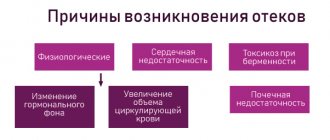In this article we will talk about how addiction to social networks manifests itself, where it comes from and how to deal with it correctly.
Social media addiction is considered a real threat to a person’s mental state because it changes personality and ability to socially adapt. The whole problem is that the Internet is really capable of satisfying all human needs. They are standard, designed for everyone, and there are also narrow ones related to development and professional interest. And this is not surprising, thanks to social networks we can quickly exchange information, solve complex issues, plan some business and even make purchases.
A lot can be done by bringing like-minded people together online. However, the disadvantage of all this is that a person gradually becomes dependent on this virtual world and transfers almost all communication to social networks. Let's figure it out when we can say that a problem really exists and how to deal with it.
Social media addiction is a new mental illness: name
Social media
The World Health Organization itself does not recognize social media addiction as a disease. Moreover, their creators deny the existence of problems. However, this does not prevent people from becoming increasingly immersed in the virtual world. In the worst case, this becomes the only form of communication with the outside world.
Psychiatrists are sounding the alarm and putting this addiction on the same level as drug addiction or alcoholism. And indeed, it acts in a similar way. Only people start to worry much later, because too much communication on social networks is difficult to notice.
Addiction to communication on social networks: concept
Social media addiction is a constant need to be online, forgetting that there are real people around. Moreover, the sense of time is lost. Often in this state, people actively spend money on all sorts of paid mailings, purchasing bonuses, and so on. From the outside, the situation looks very absurd. Gradually, such people constantly begin to check pages on social networks and email.
Accordingly, the more a person is drawn into virtual communication, the more difficult it becomes for him when there is no Internet nearby at all.
Teenagers' addiction to social networks
Addiction to social networks forces people to constantly be in online communication, forgetting about real people and real time. Finding themselves in such a state, some individuals begin to rapidly spend all their savings on paid mailings of information, reaching the point of complete fanaticism. Over time, such people, without realizing it, constantly check their email and social media pages.
The longer a person spends time communicating virtually, the more difficult it will be for him to cope without Internet capabilities. Social media addiction is similar to drug addiction or alcoholism. A social network and craving for virtual interlocutors is a kind of psychological disease that arises due to a lack of attention from people around us or one’s own internal complexes.
The problem of adolescent addiction to social networks: features
Addiction of Adolescents to Social Networks
The main problem that addiction to social networks forces to solve is that it is observed to a greater extent in adolescents. In older and older adults, it does not manifest itself so clearly.
First of all, social networks are very popular and fashionable, and all boys and girls strive for trends. They always want to be aware of events. This is why they spend a lot of time on social networks and they become addicted to them. Moreover, teenagers do not have special life experience or responsibility like adults. They do not have to devote much time to family and work.
In addition, teenagers are still just developing their individuality, and therefore they are too dependent on other people’s opinions. They constantly post their own pictures and write things they think are interesting in order to get approval. They get used to putting their lives on public display, which is not a good thing.
Not everyone can get rid of this habit without consequences. This requires enormous willpower. Parents should also provide all possible assistance and support to their child. Their task is to suggest doing five simple things:
- Spend up to two hours a day on social networks. Don't just look at the page
- Write down the things that absolutely need to be done. And only when they are completed will you be able to log into the social network
- Don't rush to tell everyone about everything. Keep personal details to yourself. Never forget that this can be used against yourself
- Don't join groups you're not interested in and try not to read long news stories to reduce your time online.
- Communicate in person as much as possible. Don't give up walking or traveling
Social media addiction - who is affected?
Features of addiction to social networks
It cannot be said that everyone can become addicted to social networks. There are many people who can go online once every couple of days, or even once a week, and respond to important messages or transmit information. Such people have different priorities in life and there is no place for dependence in them.
There are people who have no desire to communicate on the Internet at all. They may visit the page several times a week, but not for long out of boredom. This behavior is normal, but if you constantly occupy your free time with social networks, it will not end very well. In any case, after a few months, addiction will begin to develop.
The third group of people is the largest and it is precisely the addicted one. They tend to visit their page at least every 20 minutes. They are always waiting for a message, and if correspondence begins, then even chatting about nothing goes on for several hours. At the same time, they do not care at all what is happening around them.
Usually, lonely and timid people who find it difficult to communicate in person become addicted to social networks. But on the Internet they can feel like heroes. They themselves do not notice when they go beyond the line and become dependent.
Social media addiction
Research shows that 63% of Americans access social media daily.
and 40% log in
several times a day
(today we can say with confidence that our compatriots are not far behind American Internet users in this matter).
People use such sites for many purposes, but the main reason is to distract their attention from everyday life or to escape boredom.
People love to leave comments and post any information. And it is so addictive that a person simply cannot stop. Today there is even a scale to measure social media addiction.
Causes of social media addiction - where does it come from?
Addiction to social networks can be explained by the fact that it is fashionable. As we have already said, young people always strive to be in trend. The fashion for alcoholic drinks and smoking has already passed. But now everyone blogs, writes their stories, and talks about their every step. The older generation communicates much less on the Internet.
In addition to the fact that age is the reason, it is important to remember that developers are trying to do everything so that people spend as much time as possible on their pages. To do this, they change the design, add functions and capabilities. That is, you can always view only what pleases you, and block all the negativity so that it doesn’t even catch your eye. In other words, you create for yourself an ideal world that is constantly accessible, where you will not be offended and only good things will be said. In addition, a person always has to face reality, which may not be so rosy. And people are looking for salvation from this on social networks.
Gradually, a person develops hormones of joy from spending time on the Internet, paid content and functions begin to be used. For some, social media is the only place they can be recognized. But we all enjoy being praised. So, if in the real world beauty or talent was not recognized, then he will try to be where all this is.
It is also important to note that addiction in adolescents develops due to a large number of complexes that appear during adolescence. But online communication allows you to depersonalize yourself to some extent and feel free.
Causes of addiction to social networks
The first reason why social networks are so attractive to humans is that when we “wander through the open spaces” of social networks, the pleasure centers in our brain are activated. This is greatly facilitated by positive ratings (“likes”) and pleasant comments on our photos. What do we do when we receive a pleasant emotion? Right. We return to the network to get it again. So it turns out that the more a person is approved on a social network, the more time he spends there.
The second reason is related to the peculiarities of a person’s perception of information posted on social networks. We get it quickly and little by little. Moreover, this information is extremely diverse and heterogeneous. For example, when visiting the VKontakte website, we can immediately turn on the music, while simultaneously viewing brief news, small notes and articles, comments, and at the same time still have time to respond to messages from friends. Our brain begins to quickly adapt and get used to this pace. It's like a quick and easy process of "clicking" seeds.
Here it is also worth emphasizing the heterogeneity of the information received. This distinguishes it from information in search engines. To find something in a search engine, such as Google or Yandex, you need to at least know exactly what to look for. Moreover, you still need to formulate a fairly clear request. And this, of course, requires some time and effort. In turn, to find something interesting on a social network, no such effort is required - you just need to open the news feed. Thus, social networks attract people mainly due to their accessibility, simplicity and diversity.
Signs of a teenager’s addiction to social networks - how does it manifest itself?
Signs of addiction to social networks
When a teenager is addicted to social networks, it can be recognized by several signs.
They are as follows:
- The child constantly wants to be aware of information and therefore regularly checks messages on his pages and in the mail. Moreover, he can do this every five minutes.
- He sits for a long time and looks at the pages of friends and acquaintances, without noticing how much time has passed. Sometimes a child can spend 24 hours in front of the monitor
- A child promises to just watch something and ends up disappearing for several hours
- There is great interest in comments, especially under your own photos. The same goes for likes
- All communication takes place exclusively virtually. In real life it rarely happens
- Visit games and applications when notifications arrive. This is done with great interest
- If you can’t log into a social network or there is no Internet, then aggression begins and the child seems to be cut off from the whole world.
Treatment of addiction to social networks - how is it carried out?
Treatment of addiction to social networks
When a person turns to a specialist because he has an addiction to social networks, he gives a number of recommendations. It is important to follow them exactly in order to definitely solve the problem.
So, to get rid of addiction, you will need:
- Determine the exact time when you can visit the website . Moreover, both the start and end times. Gradually the time should be reduced to a minimum.
- Try to communicate on the Internet as little as possible. Remove all unnecessary friends, write only what is important, and also remove uninteresting groups. Even if you have any questions, try to always at least make a call.
- Stop posting details of your personal life. The fewer posts you make, the more boring you will be online, because you will no longer have to keep track of likes, comments, and in general there will be less communication.
- Disable the image loading feature in your browser. When there are no images at all on a social network page, it turns off and becomes uninteresting.
- Don’t forget to write a plan of mandatory tasks for every day. This will allow you not to plunge deeply into the news and not approach it at all until all matters are redone.
- Find an interesting hobby that you can focus on. So, when you want to go online, just do it.
- Give up the habit of eating on your phone or at the computer.
- Go outside as often as possible, even just for a walk . By the way, it is also advisable to ask friends and family to keep an eye on you.
Prevention of addiction to social networks - how to avoid becoming addicted?
In general, so that addiction to social networks does not bother you, it is better to prevent it. There are several preventative recommendations for this:
- Communicate more in the real world or at least on the phone. Well, if you have free time, then spend it with friends or family, but don’t sit on the computer
- Set a limit for surfing the Internet. This way you won’t have the urge to look at what’s new in your feed.
- Install a program to remind you of the time spent on a social network. After the time has expired, the program automatically removes you from your personal account.
Addiction to social networks is a really bad habit that you can and should get rid of. Remember that although virtual life is attractive, real life is in any case more interesting.
How to get rid of addiction to social networks?
Getting rid of addiction should begin by determining the time frame for being on the social network. It is best to visit the page at approximately the same time - for example, in the evening after work. Experts also advise turning off notifications received by email - this way there will be no temptation to visit the social network at an unplanned time.
You should meet real people more often - friends, acquaintances. Virtual communication needs to be replaced by real communication as much as possible. You can also find interesting activities that will distract you from the social network and allow you, so to speak, to feel the real world.
You can also learn to log into a social network “on occasion”: for example, after some successful accomplishment, after an interesting trip. This way, there will be less temptation to sit on the social network for hours and “chatter about nothing”: you go on business, post the information that you consider important, try to share it with other participants - and leave the social network.
It is important to remember that real life takes place in reality, and not in the virtual world, which at best is only a weak reflection of real life. Therefore, the social network should become more of a recreation and entertainment in your free time, and not some important component of life.
Author: Sergey Semenov
We also recommend reading:
- Storytelling
- How to stop being distracted by social networks?
- A wolf in sheep's clothing: the secret side of social networks
- Social technologies
- Social groups: signs, types, functions
- Dunbar's number: limitation or opportunity?
- Smartphone addiction
- Social networks are not for procrastination: tips for those who want to get more benefit from social networks
- 10 Ways to Minimize Distractions
- Social Media Business Strategies
- Ways to simplify your life
Key words:1Psychoregulation
Consequences of addiction to social networks - what is the danger?
Consequences of addiction to social networks
Addiction to social networks can lead to disruption of a person’s mental health, and physical abnormalities become a consequence. That is, over time, vision problems develop, headaches appear, digestion is upset, the spine hurts, and sleep becomes poor.
At the same time, addiction has one consequence - you constantly want to receive new information, and this leads to loss of perception of real information, inattention and lack of concentration. It becomes difficult for a person to concentrate on simple things, because other people’s problems and information will constantly be spinning in their head.
Adults should look after not only themselves, but also the child. Especially for him, because his psyche is more receptive and has not yet fully strengthened.
Negative consequences of social media addiction
So, we found out why social networks are so attractive to people. Now let's figure out what, exactly, is the danger of overly active use of social networks? Why, in this case, do scientists increasingly use such a harsh word - “dependence”? This is due to the fact that dependence on social networks causes a whole range of negative consequences, both for the person himself and for his loved ones. Let's look at them in more detail.
Firstly, very frequent and prolonged stay on social networks leads to the so-called attention deficit disorder. This means that a person loses the ability to concentrate on one thing for a long time. To explain this, it’s enough to remember how we receive information on a social network - quickly and in small portions. People dependent on it become so accustomed to this “portioned” mode of receiving information that after a while they can no longer, for example, spend a long time solving any given task. After all, on the Internet we often have to switch our attention from one thing to another: here we are listening to music, then reading a short article, and now writing a message. Over time, even reading your favorite book can become difficult because the brain, out of habit, begins to constantly “look” for reasons to switch to something else.
Of particular concern in this sense are the younger generations, who have been “involved” with the Internet and social networks almost since childhood. Their thinking is very flexible and very easily influenced. Therefore, dependence on networks poses a special danger for children and adolescents, which is becoming extremely difficult to avoid in the modern world.
Secondly, prolonged use of social networks eventually causes information addiction. Continuously receiving “pieces” of information becomes a kind of habit for the brain, which is difficult to break.
Thirdly, very often “abuse” of social networks causes constant fatigue syndrome, as well as stress. Although scientists say that the human brain's capabilities are almost limitless, it still needs some rest. At a minimum, in order to process and structure the information received. When a person is constantly online, the flow of information to the brain practically never stops. This causes the brain to become overloaded. Therefore, a person begins to feel constant fatigue and is in a stressful state.
Fourthly, overly active communication on social networks often leads to the loss of “live” communication skills. This is perhaps the most obvious negative consequence of this addiction. Constantly communicating on social networks, we very often lose the emotional component of our communication with friends and loved ones. There is simply no time for emotions online. Music, comments, “likes”, news, and only in between – a message written by touch.
And finally, fifthly, as a result of all the above consequences, a person receives a general decrease in intelligence. Here, of course, the same features of “network” information play a decisive role. A person loses the ability to concentrate on one thing, find a solution to an important problem, or seriously think about the task at hand. His brain can no longer work effectively. He gets used to simply receiving an endless stream of information without analyzing it in any way. It turns out that a lot of information is received, but it is not absorbed and as a result the person knows nothing.
These negative consequences are enough to imagine and slightly appreciate the seriousness of the situation.
Addiction to social networks - how to fight: reviews
Many parents have experienced their children developing an addiction to social networks. They often say that everything will go away on its own, but sometimes there are cases when a child spends time on the Internet constantly and goes beyond all possible boundaries. In any case, most parents agree that social media is causing a lot of harm and should be limited.
Review 1
Review 2
Review 3
Review 4
Review 5









